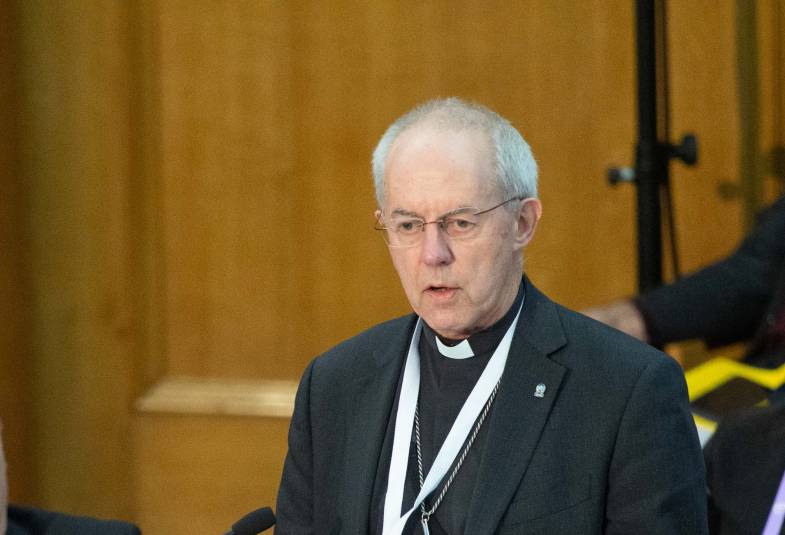14/11/2023

Read Archbishop Justin's speech in full:
There is nothing new about division within the church of God, including that part which is the Church of England. Indeed, since the days of the apostles and the writing of the New Testament a large proportion of the epistles and subsequent writing is about dealing with differences. By the time we get to I John, there were numerous threats to the unity of the church.
Yet that epistle, like those before and after, brings an order to the questions that face the church. A first question is about identity and a second is about actions.
The church is first, foremost and finally those who confess with their mouth and believe in their hearts that Jesus is Lord (Romans 10:9). John’s very similar creed is similarly simple. To confess that Jesus comes from the Father, and to obey his commandments, which in the context of I John, are to love our sisters and brothers.
The consequent actions are the commandments that Jesus sets out in his final speeches and prayer in John 13-17; love one another, wash feet, that is, serve one another.
The church is distinct by its unity of love – the world will know we are Christians by our love, not our unanimity of thought. Holiness is to imitate God (I Peter 1:15), and that is where we become different to the world around us, when we love not only those like us, but those who are most unlike us. Whether in idea or in any other way.
It is too hard. We fail. Our infectious culture of the age starts by categorising people by other forms of identity. And too often we join in and we feel that we must protect ourselves from other identities. But Christians all start with one foundation of identity- Jesus Christ – and how he knows who we are. And so, we are children of God by God’s call and choice, and all the other identities rest on that foundation (I John 3:23, 4:15-21).
That is the challenge of God’s church today and of the General Synod in this era. What is our identity and what are its results?
First results, let us remember that we are all Christians, brought together only, entirely and in no other way but by grace. I have not heard any reason in any of the innumerable meetings I have been to, or the innumerable letters, emails and other forms of communication that I have received, to think anything other than that we have different understandings of how our shared identity in the Lord Jesus Christ should be lived in holiness, vocation and action, all those understandings held with deep passion and sincerity after profound prayer, biblical and theological study and love for God.
Do they meet John’s test, do they meet Paul’s tests? Do they confess with their mouth and believe in their heart that Jesus is Lord? Do they believe Jesus is from the Father?
It is not for me to judge the hearts that only can be seen by God. And until that point when all things are revealed in the final judgement, if they claim identity with Christ, if someone else, a brother or sister, claims identity in Christ, they are my sister and brother in Christ, and to be loved, not to be expected to leave and go somewhere else - because they are included in God’s economy and they remain sisters and brothers even if they differ deeply and on important matters.
Second, as a consequence of that, we are, in our discussions, to assume the best from what we hear from others, to give them the benefit of the doubt, even if they speak carelessly.
This is a process of long-term discernment amongst those not of two, but of many views, across a wide range. It is in our being curious about others views, in being present to each other as all belonging to Christ, and together in reimagining our way forward, that we show the world the family nature of Christ’s church and his unutterable, unlimited, extraordinary grace with which we are loved.